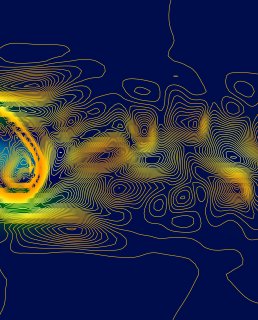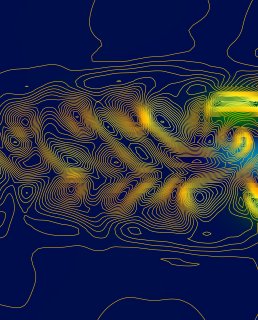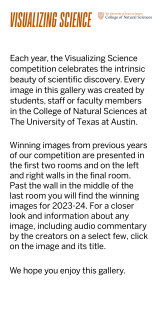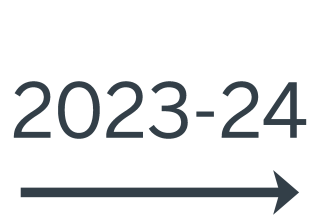
Editors’ Choice 2022
40 x 64 x 3 in (h x w x d)
Editors’ Choice 2022
This image illustrates a connection between two wildly different areas of mathematics: the geometry of curved spaces (a.k.a. non-Euclidean geometry), and the theory of algorithms and computation. The picture shows a triangular tiling of the hyperbolic plane, an example of a space with negative curvature. The symmetries of the tiling can be described by a finite-state automaton, an abstract "machine" which gives a procedure for reaching any triangle by following a simple set of rules. The colored circles show the 14 different states of this machine as it runs through all of the triangles, giving a tree of paths to different points in the space.
Credit:
Theodore Weisman
Mathematics Graduate Student




